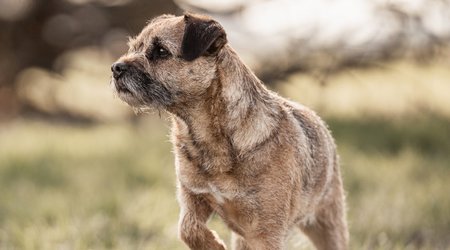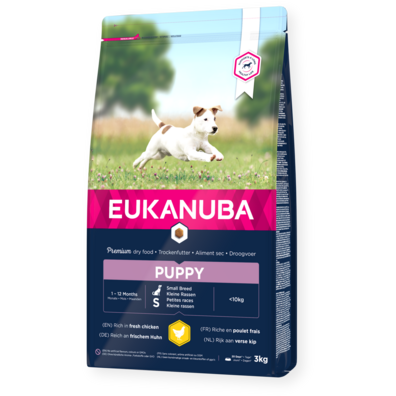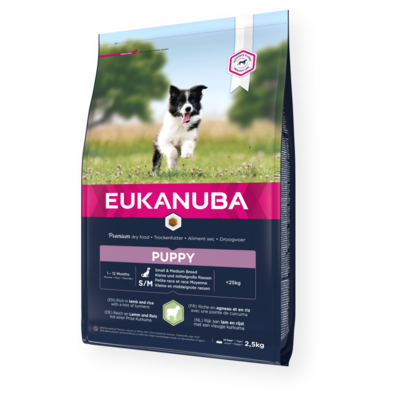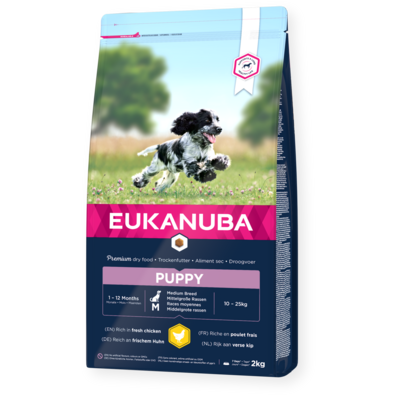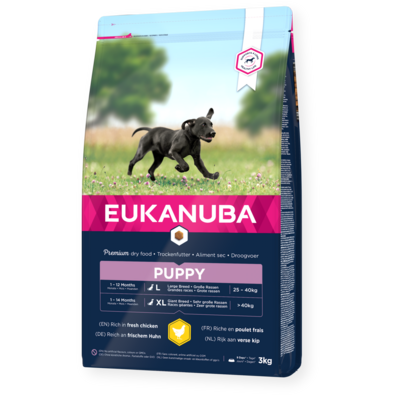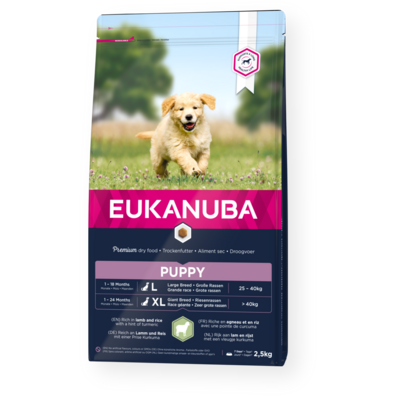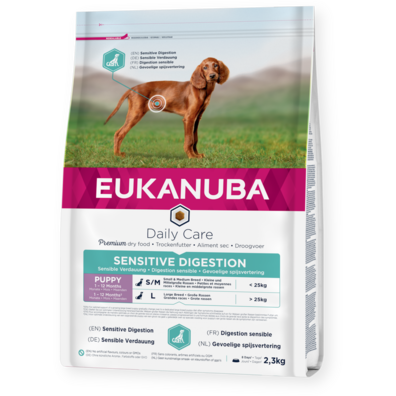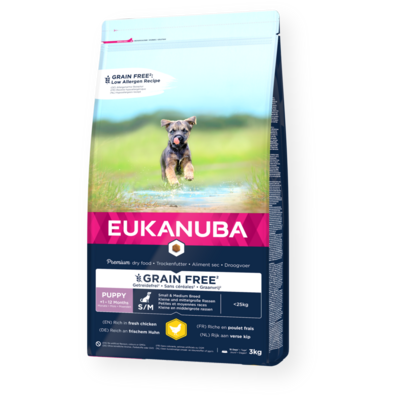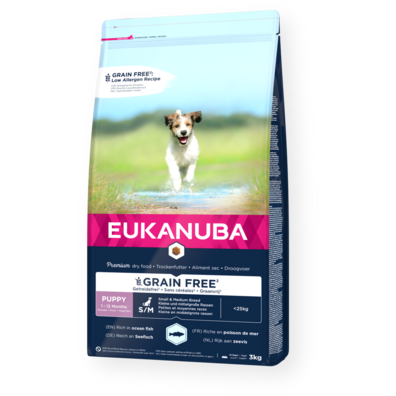Puppy feeding guide
Just like children, puppies have different nutritional needs from adults. When selecting puppy food, take the same care you would if choosing baby food for an infant to help ensure they get off to the best possible start. The nutrition you provide them with now lays the foundation for a long and healthy life.
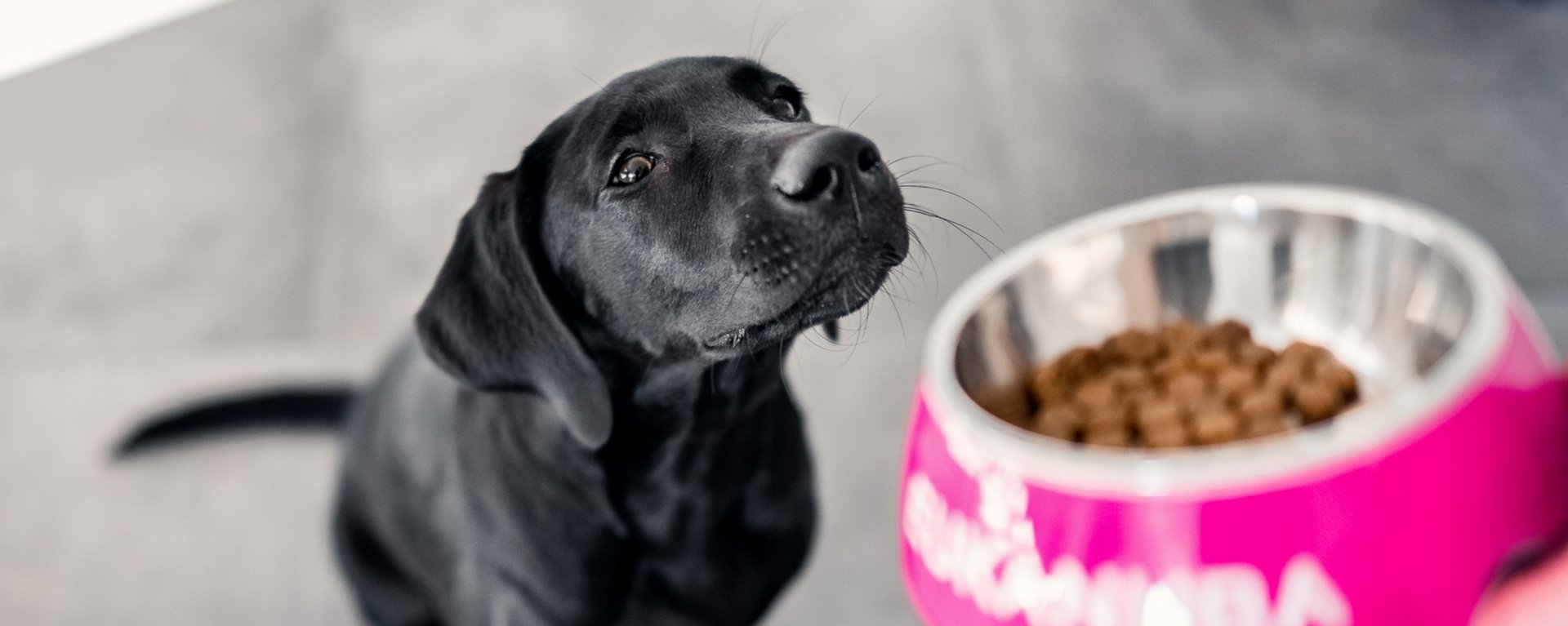
Owning a new puppy is about so much more than just the food you give them. The close bond that you form with your puppy now will last for a lifetime. Of course, you'll train your puppy in the right behaviours, but before all of that it's important for the puppy to feel loved, safe and secure in its new home and with the people who are going to form its new family.
Having already been weaned onto solid food from their mother’s milk by your breeder, your puppy now needs a high quality puppy food that will provide 100% complete and balanced nutrition.
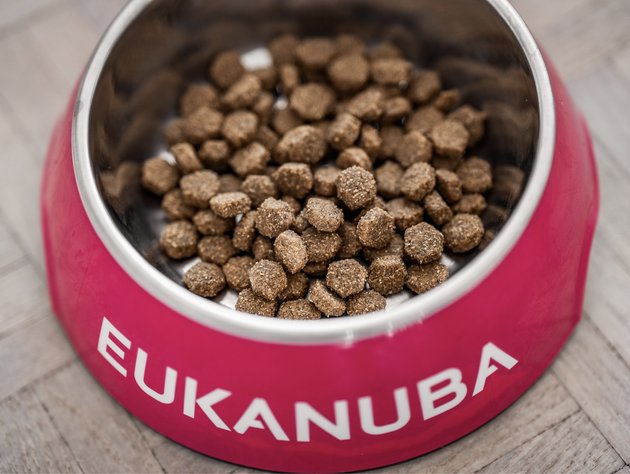
The right food
Choose high quality puppy food
A good quality puppy food will contain high levels of proteins and fats, omega-6 and omega-3 fatty acids, as well as a range of vitamins and minerals to keep your puppy in optimum physical condition. The type of protein is also very important, as it provides the nutritional building blocks for healthy growth and development. Choose a puppy food with high quality animal protein such as chicken, lamb or fish.
The expert's choice
We believe a puppy food should contain all of the following
- High quality animal protein – to support the healthy growth and development for muscles and bones
- DHA to help puppies learn and be more trainable
- Appropriate fibre such as beet pulp, and prebiotic FOS to help support healthy digestion
- Balanced Omega 6 and Omega 3 fatty acids for a healthy skin and coat
- Vitamin E & C to help support a healthy immune system
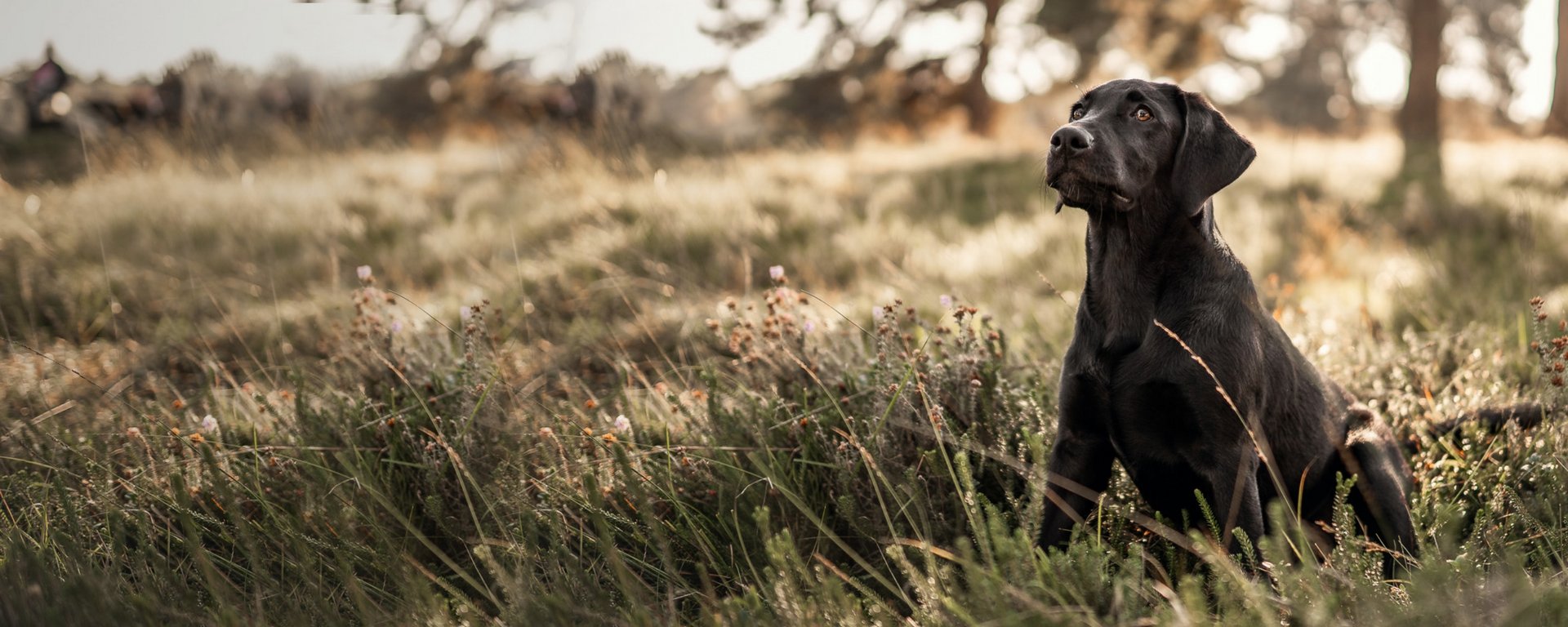
Different diets for different dog sizes
Puppies experience their most rapid period of growth during the first six months of life, using nearly twice the energy of an adult dog on a gram for gram body weight basis. Since their stomach capacity is still developing it's important they’re given a tailored diet for their nutritional needs and breed size.
- Toy and small puppies develop fast and need high levels of protein, fat and calcium in their diet
- Large and giant puppies need controlled levels of protein and calcium to support a slower growth rate. Large breed puppies may continue growing for up to 24 months!
- Medium-sized puppies are somewhat in between these two guidelines.
How do i know how much food my puppy needs per day?
Unfortunately, there is no universal number of calories that a puppy needs at the age of 4, 6 or 10 months.
However, the right amount of food depends on various factors:
- Type of food: dry/wet food, mix, BARF, home-prepared
- Current age of the puppy in months
- Current weight of the puppy
- Expected final weight
- General state of health
- Activity level
All of this means that you will need to continually adjust the amount of food your puppy eats over time as its body changes as it grows. It is not only important to provide your puppy with enough food, but also to ensure that you do not overfeed him. For large breeds in particular, a comparison of the current weight with the expected growth curve is also a helpful tool. If you are unsure, always consult your vet.
The 1x1 of puppy feeding
Puppy feeding tips
Once you've chosen your puppy's food, remember these top tips to ensure your puppy is eating well:
- Measure portion size correctly. Start with the daily amount recommended on the bag and divide by the number of times you'll feed your puppy (once in the morning and once in the evening).
- Remove the bowl after they’ve had a chance to eat for 30 minutes. This avoids overfeeding which leads to unhealthy weight gain.
- Always ensure your puppy has access to a bowl of fresh water and change it regularly to keep it fresh.
- Regularly check their weight by moving your hands along their sides. You should be able to feel their ribs. You should also be able to see their waistline if you look down at them from above or from the side. Check out our handy guide to keeping your dog in optimal body condition.
- Remember, all EUKANUBA Puppy food is complete and balanced for their nutritional needs. Adding anything else to their diet can interfere with the absorption of minerals in their food.
If you’re concerned about any aspect of your puppy’s feeding or their weight, take them to your vet for a check-up.
Changing the food
When should your puppy move on to adult food?
In the early weeks and months, puppies need special nutrition to help them form strong bones and provide them with enough energy to keep up with the demands of all that growing. Once they become an adult dog it's important to choose their food carefully to build on the good foundation their puppy food provided.
The time at which your puppy becomes an adult dog depends on their size. Every dog is different but the following is a reasonable guide for the age at which dogs reach maturity:
- Toy and Small dogs, 9-12 months
- Medium dogs, 12 months
- Large dogs, 12-15 months
- Giant dogs, up to 24 months
In the case of large and giant breed dogs this can mean that your dog might look like an adult when they are still very much a puppy, with more adolescent than adult behaviour!
Our recommendation
Introducing junior food
At EUKANUBA, we understand that dogs of different sizes need different care. That’s why we've introduced Developing Junior food – a transition diet for larger dogs between puppy and adulthood.
Junior food still contains all the basic building blocks your dog needs, like DHA for trainability and high quality animal protein, but also helps larger dogs maintain a slow and consistent growth rate, giving them a little extra help to build strong joints and muscles ready for their adult lives.
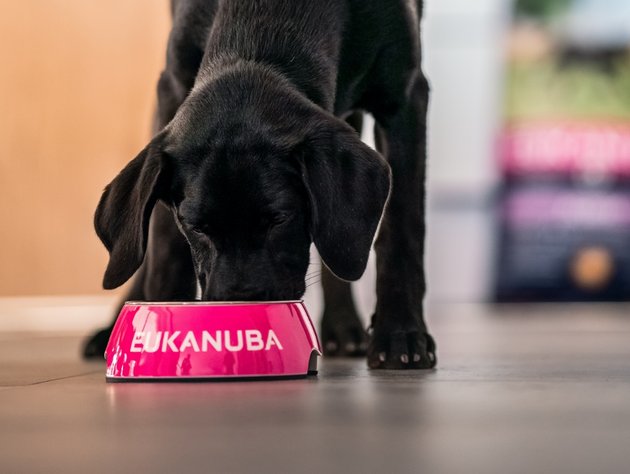
Only the best ingredients
What to look for in adult dog food
Your dog will need a complete and balanced diet that meets all their nutritional needs for the next life stage. This will help keep them in optimal body condition without providing too much energy, which could lead to weight gain.
When choosing an adult dog food, along with high quality animal protein, look for food that contains calcium to support your dog's joints as they age. Keep in mind all of they key vitamins that you'd look for in puppy food, such as Vitamins E and C, omega 6 and 3 and the right amount of fibre as these are vital throughout a dog's life.
As well as providing regular exercise, investing in quality food is one of the best things you can do to help your dog live a long and healthy life.


